Sierra Leone Field Epidemiology Training Program (FETP) Cohort 16 Frontline and Cohort 7 Intermediate final presentation and Graduation Ceremony.
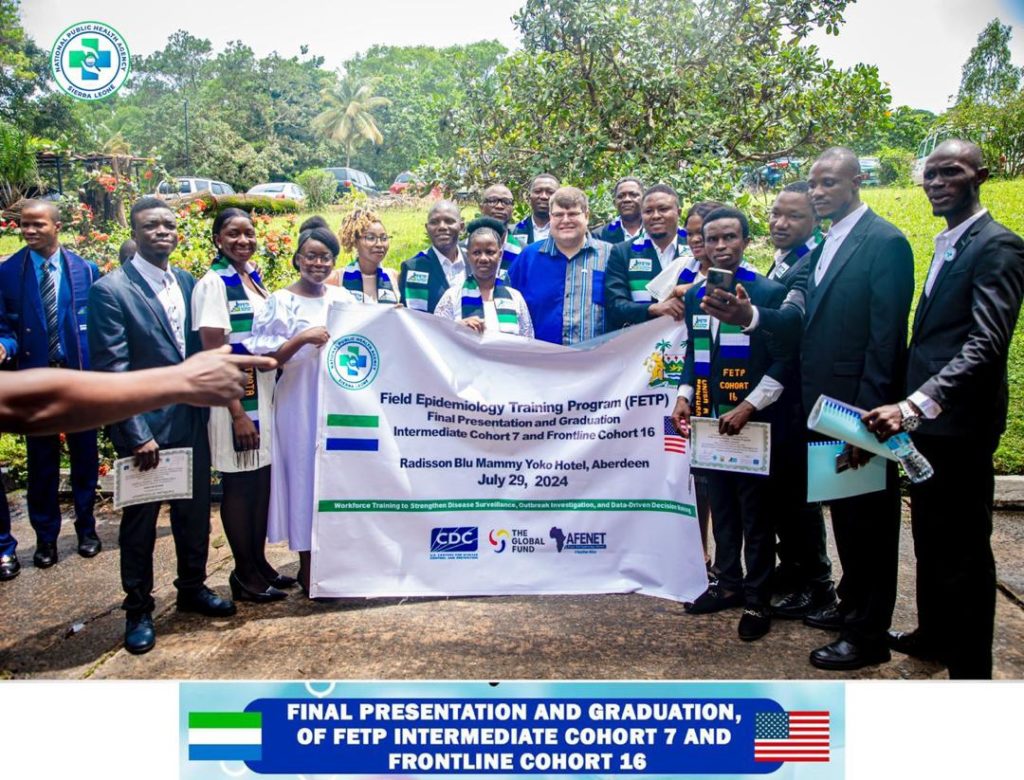
We are delighted to announce the successful completion of the Sierra Leone Field Epidemiology Training Program (FETP) Cohort 16 Frontline and Cohort 7 Intermediate final presentation and Graduation Ceremony. The event, held in the presence of distinguished guests, was a true celebration of the dedication and hard work of these public health professionals in advancing disease surveillance and response in Sierra Leone. The ceremony was graced by esteemed individuals including the Deputy Executive Director of the National Public Health Agency (NPHA), the Executive Director of NPHA, the Ambassador of the United States to Sierra Leone, Country Director of the U.S. Centers for Disease Control and Prevention (CDC), the Country Representative World Health Organization (WHO), and the FETP Resident Advisor from the African Field Epidemiology Network (AFENET) Sierra Leone. The occasion was led by the Executive Director of NPHA, who chaired the event with grace and enthusiasm. The presentations showcased the tremendous efforts and achievements of Cohort 16 and Cohort 7 in addressing public health challenges, conducting impactful research, and implementing evidence-based interventions. The graduates demonstrated their proficiency in field epidemiology and their commitment to improving the health outcomes of communities across Sierra Leone. Also, the distinguished guests shared inspiring words of encouragement and recognition for the graduates’ accomplishments, emphasizing the critical role of field epidemiologists in safeguarding public health and preventing disease outbreaks. They commended the graduates for their exceptional work and urged them to continue their efforts in strengthening the nation’s public health infrastructure. As we celebrate the accomplishments of Cohort 16 and Cohort 7, we also express our gratitude to the mentors, supervisors, and partners who have supported the FETP participants throughout their training journey. Their guidance and mentorship have been instrumental in shaping the future leaders of public health in Sierra Leone. Congratulations to the graduates of Sierra Leone FETP Cohort 16 and Cohort 7 on this significant milestone! Your dedication, passion, and expertise will undoubtedly contribute to a healthier and more resilient Sierra Leone. Best wishes for your future endeavors in the field of epidemiology and public health.
Successful Scientific Manuscript Writing and Peer Review Workshop Organized by AFENET/Sierra Leone Field Epidemiology Training Program (SLFETP) with Support from US CDC
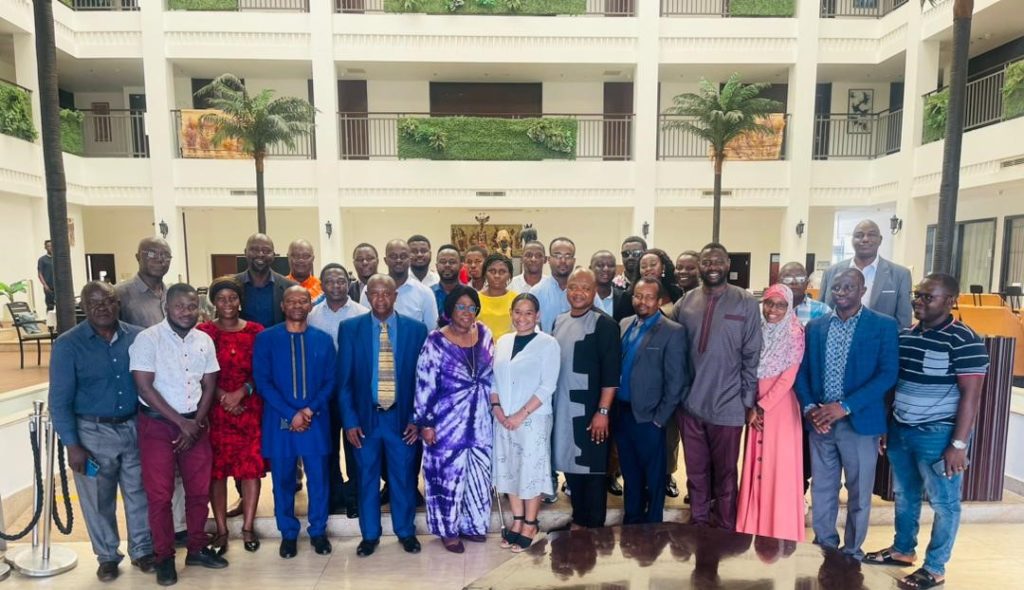
We are delighted to announce the successful completion of a scientific manuscript writing and peer review workshop, organized by Sierra Leone Field Epidemiology Training Program (SLFETP)/the African Field Epidemiology Network (AFENET) with generous support from the U.S. Centers for Disease Control and Prevention (CDC). This workshop was conducted in collaboration with the National Public Health Agency (NPHA), Ministry of Health, and University of Sierra Leone/the Sierra Leone Journal of Biomedical Research (SLJBR). The workshop was convened at Atlantic Lumley Hotel, Freetown, 15 -19 July, 2024. The workshop brought together a diverse group of researchers, public health experts, and academic professionals. The workshop was designed to enhance the skills of participants in scientific writing and peer review, crucial aspects of disseminating high quality public health research. The five day workshop aimed to provide hands on training and foster collaboration among participants, contributing to the overall improvement of public health literature. During this workshop, 14 scientific manuscripts were reviewed by high quality scientists and academic researchers. Outcome of this workshop, the Sierra Leone Field Epidemiology Training Program (SLFETP) is planning to published these manuscripts as special issue (supplement) in the Sierra Leone Journal of Biomedical Research (SLJBR).
Empowering District Health Sisters for effective Data Management and Analysis in Maternal Health
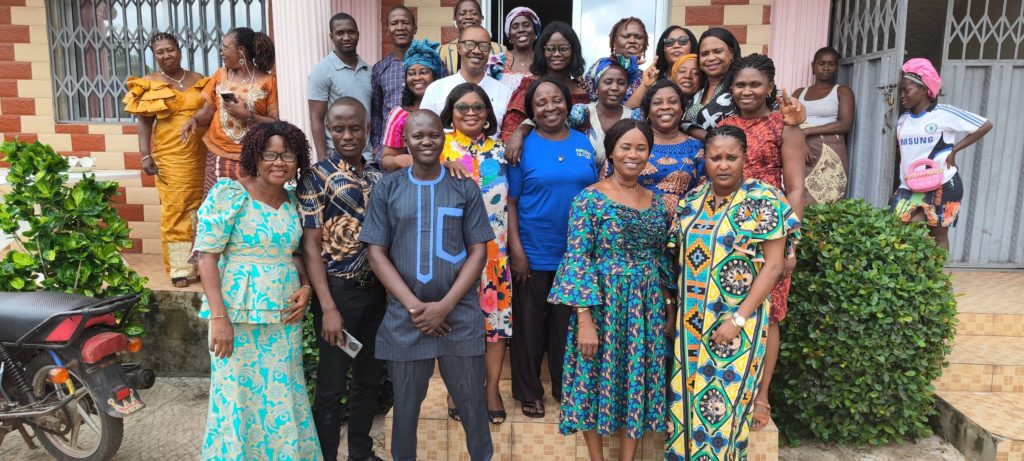
The training of district health sisters on data management and analysis of maternal mortality data using the DHIS 2 platform is a crucial advancement in healthcare delivery. This comprehensive training equipped participants with essential skills to collect, manage, and analyze data effectively. Through hands-on sessions, the sisters familiarized themselves with the DHIS 2 platform’s features, ensuring accurate and efficient data handling. Key Training Highlights: Impact & Future Expectations:The training will help improve the quality of data collected, guide policy formulation, and address maternal health service inequalities. By integrating new skills, the overall quality of maternal mortality data is expected to significantly improve. This initiative highlights the importance of continuous professional development in the health sector for sustainable public health improvements. Acknowledgement:The leadership shown by the Reproductive and Child Health Directorate and the dedication and enthusiasm of the district health sisters before and during the training are commendable. They will lead to tangible progress in reducing maternal health service inequities and enhancing community healthcare delivery.
Addressing Substance Abuse and Mental Health Concerns in Sierra Leone

In response to the escalating challenges of substance abuse and mental health disorders in Sierra Leone, the Ministry of Health, with support from partners, is actively developing a comprehensive mental health policy and strategic plan. This initiative aims to guide a well-informed public health response to these pressing issues. Milestone Achievement & AFENET’s Contribution:AFENET Sierra Leone is proud to participate in a crucial one-day validation meeting scheduled for June 28, 2024, in Freetown. Our dedicated staff has played a pivotal role by offering technical expertise and inputs in the policy validation process. This collaboration underlines our commitment to supporting the development of effective strategies that address mental health challenges and substance abuse concerns in the country. Moving Forward:The development and implementation of a robust mental health policy and strategic plan are essential steps towards enhancing mental health services and promoting overall well-being in Sierra Leone. AFENET remains committed to working hand-in-hand with stakeholders to foster a healthier and more resilient community. Join us in our collective efforts to create a future where mental health care is accessible, stigma-free, and prioritized for the well-being of all individuals in Sierra Leone. Together, we can make a difference and positively impact the lives of those affected by substance abuse and mental health disorders.
Developing a data warehouse through harmonization of all the data sources and software using the one health platform at the Sierra Leone NPHA
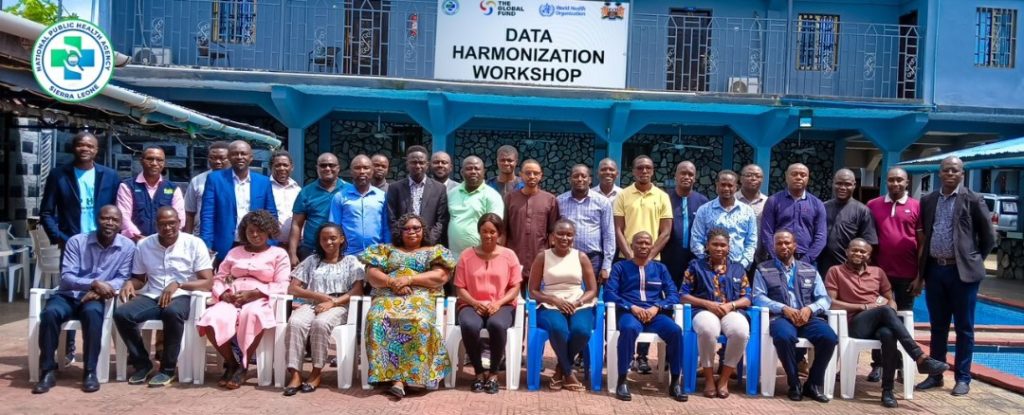
AFENET is actively supporting the National Public Health Agency (NPHA) in collaboration with other partners in setting up a data warehouse harmonising all the data sources and channels using the one health platform. A data harmonisation workshop was held in Bo district from 26th – 28th June 2024 as a baseline towards development of the data warehouse which will enhance the early warning system, early disease detection, strengthen research and policy development. This process will also strengthen collaboration across all pillars at the Agency.
Dr. Daphne, US-CDC Director Honored at AFENET Sierra Leone Office Farewell Meeting
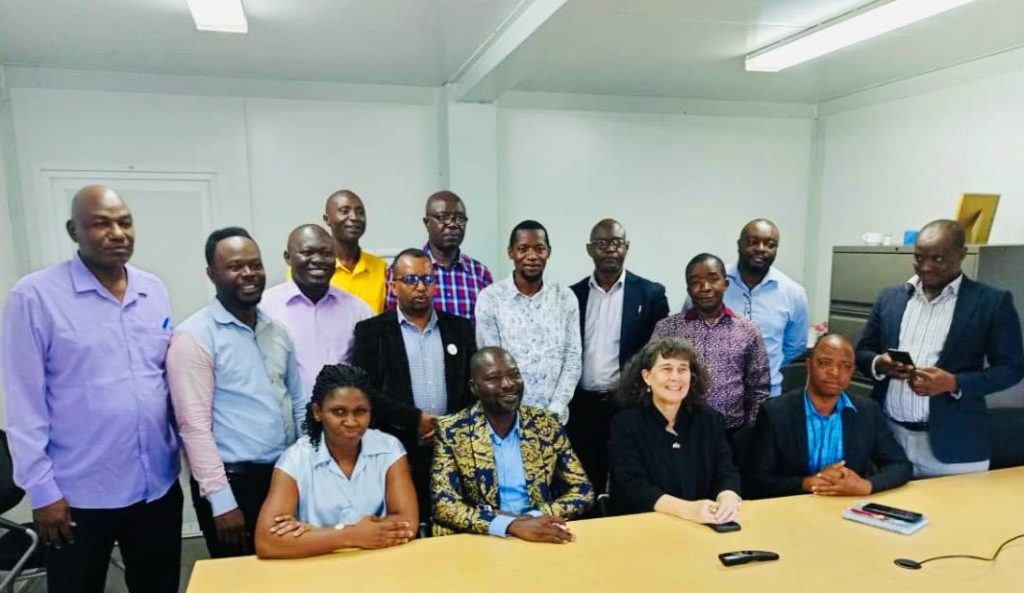
AFENET Sierra Leone Management was honored to host a heartwarming farewell meeting for Dr. Daphne, the esteemed US-CDC Director, at the Residence Advisor office. The gathering was filled with gratitude, respect, and admiration for her exemplary leadership and dedication to public health initiatives in Sierra Leone. The room was filled with staff from Sierra Leone Field Epidemiology Training Program-FETP (AFENET, and MoH/NPHA) together expresses their heartfelt appreciation for Dr. Daphne’s impactful contributions during her tenure. Her unwavering commitment to advancing public health programs and strengthening healthcare systems has left a lasting impression on all who have had the privilege of working with her. The event was a testament to her exceptional qualities as a leader, mentor, friend and a mother. Her remarkable ability to inspire and empower others was evident as heartfelt messages and tributes were shared, highlighting the profound impact she had on the public health community in Sierra Leone. As Dr. Daphne embarks on a new chapter in her career, we extend our deepest gratitude and best wishes for continued success and fulfillment in all her future endeavors. Her legacy of excellence and compassion will continue to inspire us as we strive to uphold the highest standards in public health practice and service to our communities. Thank you, Dr. Daphne, for your outstanding leadership and dedication. Your presence will be greatly missed, but your influence will endure as a guiding light for all of us at AFENET Sierra Leone and beyond.
Sierra Leone FETP Steering Committee Strategic Meeting for Enhanced Public Health Initiatives
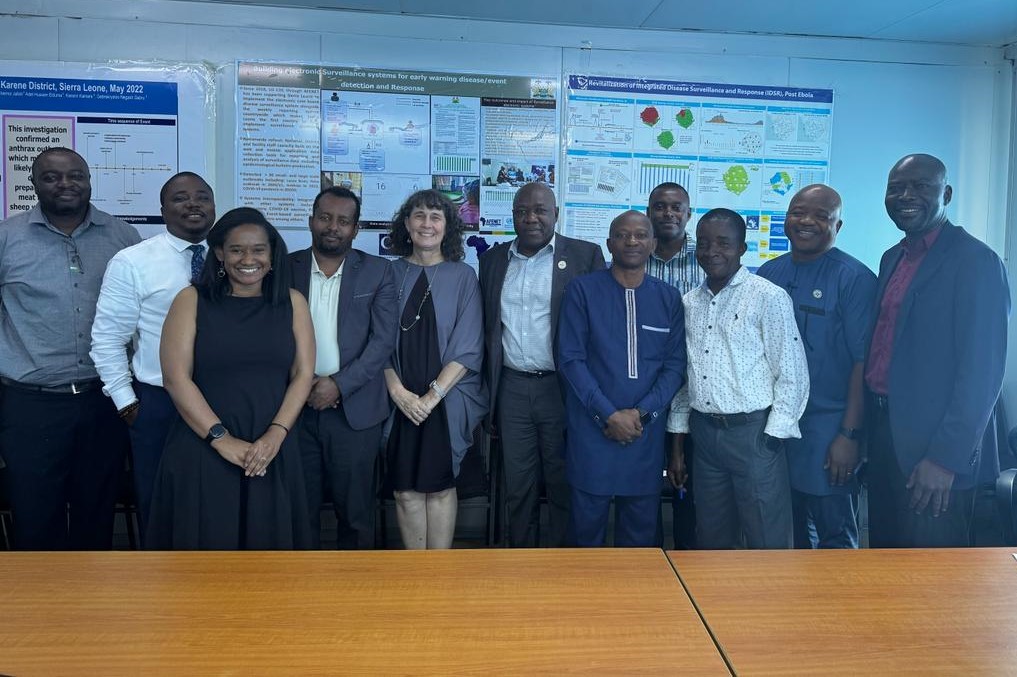
On April 15, 2024, the Steering Committee of the Sierra Leone Field Epidemiology Training Program (FETP) convened its first meeting since the establishment of the National Public Health Agency (NPHA) in December 2023. The purpose of the meeting was to review membership of the steering committee since its establishment in 2017. Additionally, the meeting centered on reviewing the progress of the FETP implementation, tackling challenges, determining program policies and activities, aligning program activities with NPHA priorities, monitoring resource utilization, budget planning for sustainability, strengthening partnerships with key stakeholders, and evaluating the program’s impact while identifying areas for improvement. The meeting, chaired by the Executive Director (ED) of Sierra Leone NPHA, Prof. Foday Sahr, featured a presentation by the Resident Advisor, Dr. Gebrekrstos Negash Gebru, on the overall progress, key achievements, challenges, and next steps. Notable attendees included the Deputy ED of Sierra Leone NPHA, the Country Director and Deputy of United State Centers for Disease Control and Prevention (US-CDC), and other senior officials.
AFENET and Partners Collaborate with Sierra Leone Ministry of Health through the EPI program to Introduce Malaria Vaccine using DHIS2 for Electronic Reporting
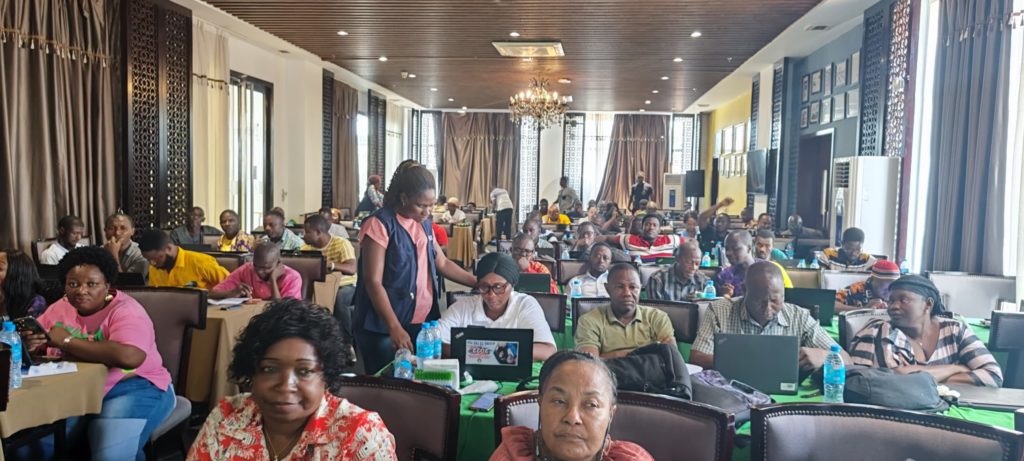
We are thrilled to announce a groundbreaking collaboration between the African Field Epidemiology Network (AFENET) and the Sierra Leone Ministry of Health through the EPI program in the introduction of a new malaria vaccine. This initiative marks a significant milestone in the fight against malaria, a disease that continues to impact millions of lives globally. AFENET, renowned for its expertise in public health initiatives, is at the forefront of supporting the vaccine introduction through the innovative use of DHIS2 for electronic reporting. This digital solution will streamline data collection and reporting processes, enabling real-time tracking of child vaccination efforts, and ensuring timely intervention where needed. The partnership with the Sierra Leone Ministry of Health underscores a shared commitment to improving healthcare delivery and combating infectious diseases. By leveraging technology and collaborative efforts, we aim to enhance vaccination coverage and ultimately reduce the burden of malaria in the country. Join us in celebrating this important step towards a healthier future for all. Stay tuned for updates on our progress and the impact of this crucial vaccination program. Together, we can make a difference in the fight against malaria.
Sierra Leone Conference report on 3rd Emmet A. Dennis National Scientific Conference
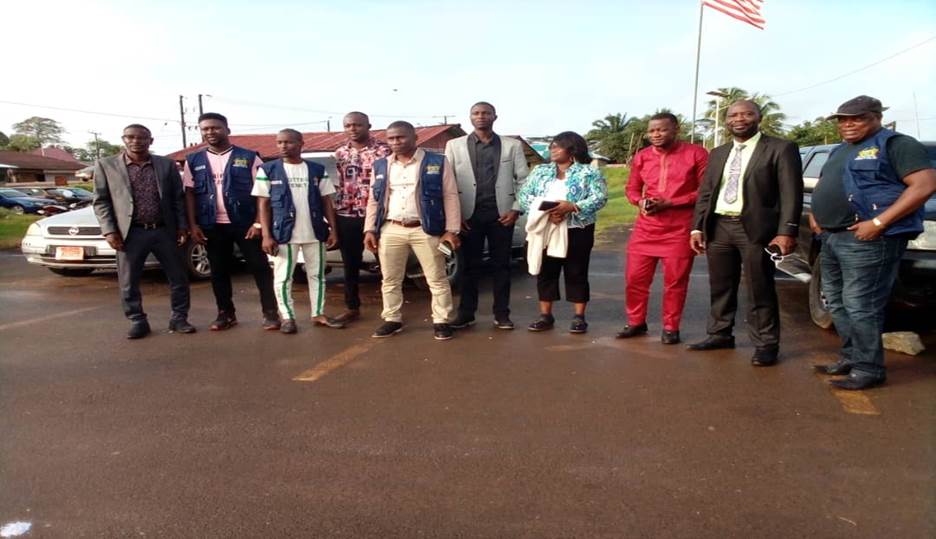
The National Public Health Institute Of Liberia (NPHIL) in collaboration with AFENET and support from partners is hosting a three-day National Scientific Conference beginning today, Monday, to the August 31, 2022 to cultivate and incentivize innovations by shedding light on the work of scientists and providing a platform that will showcase their knowledge, collective skills and scientific techniques. It is part of NPHIL’s broader mission and mandate to prevent and control public health threats by promoting healthy outcomes and serving as a source of knowledge and expertise for advancing science in Liberia. This year, 3rd Emmet A. Dennis National Scientific Conference was held at the Ellen Johnson Ministerial Complex, Monrovia, Liberia on the theme: “Maintaining Public Health during a Pandemic”. No. Name Designation/role 1 Kassim Kamara FETP Intermediate Mentor 2 Alhaji Amara Sheriff FETP Intermediate Mentor 3 Joel F Mansaray FETP Frontline Mentor 4 Sahr Amara Moiba Presenter 5 Dauda Kamara Presenter 6 Abass Kamara Presenter 7 Mohamed S Bah Presenter 8 Nancy Patricia Campbell Presenter 9 Alpha Umaru Bai-Sesay Presenter 10 Paul S Mansaray Presenter Presentations: the three poster presentations were made on August 30 and 31 2022 while all the oral presentations were made on 31 August 2022. The presentations attracted several participants including scientists, epidemiologists, and laboratory and vaccine experts. They used the opportunity to explain the work done by Sierra Leone FETP graduates in public health. Interested participants asked questions which both presenters correctly clarified. Achievement One of our participants, Mohamed S Bah, was awarded the best Poster Presentation.
Mohamed S. Bah wins the best poster at Liberia 3rd Emmet A. Dennis National Scientific Conference

The National Public Health Institute of Liberia (NPHIL), in collaboration with her partners, including AFENET, successfully hosted the 3rd Emmet A. Dennis National Scientific Conference held from August 29 to 31, 2022, at the EJS Ministerial Complex Monrovia. The theme of the conference was “Maintaining Public Health during a Pandemic.” The first and second editions of the conference were held in 2018 and 2019, respectively. The conference is an annual event that provides the scientific community in Liberia the opportunity and platform to share research findings and deliberate on recent developments in public health and other related scientific disciplines. The conference could not hold in 2020 and 2021 due to the COVID-19 pandemic, which restricted travel and in-person meetings. The Director General of NPHIL, Hon. Jane A. MaCauley, in her opening remarks, noted that this year’s conference was a deliberate effort to relaunch and reignite Liberia’s scientific zest and passion. The conference had eight plenary sessions with speakers drawn from global, regional, and national public health experts, policymakers, and stakeholders. There were three concurrent oral breakout sessions, two concurrent poster breakout sessions, and three panel discussions with over 94 scientific abstracts presented. Dr. Tom Frieden and Dr. Moeti (represented by Dr. Clement, WHO Liberia Country Lead) made presentations on the theme. The various sub-themes speakers drawn from US CDC, UNICEF, Liberia One Health Platform, Ministry of Health, Ministry of Finance and Economic Development, Ministry of Justice, etc. The conference had over 290 attendees from Liberia, Sierra Leone, the United States of America, Uganda, Somalia, Ghana, and the Gambia. The attendees were drawn from academia, research institutions, public health policymakers, international Non-Governmental Organizations, funding agencies, and independent public health experts.
